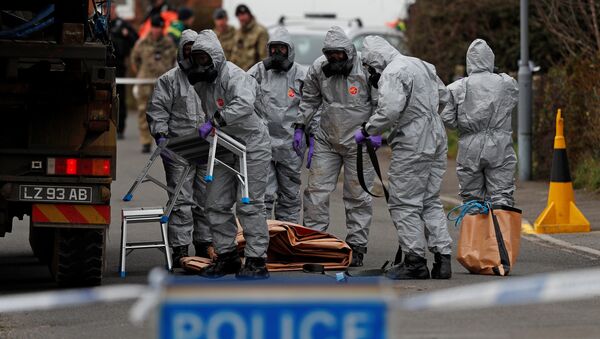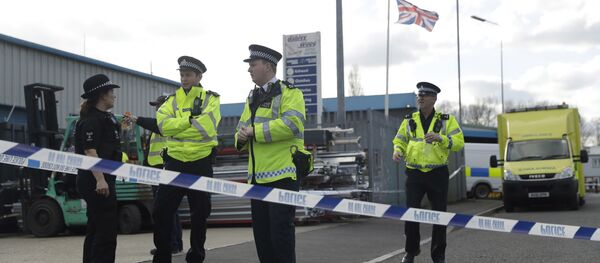Good Year
Stoltenberg has every right to be satisfied: Montenegro has become the 29th member of the Alliance. But most importantly, for the last three years, the defense budgets have been seriously growing. Even the worst students in the class, notably Germany and Belgium, increased their defense budgets in 2017.
READ MORE: UK Gov't Skripal Story is ‘Speculative, Ideological’ – Investigative Journalist
US President Donald Trump's vicious criticism of those who were slow to spend on defense has clearly had some results, and in 2018 eight countries will fulfill the common pledge to dedicate 2 percent of their GDP to defense.
This was "business as usual," but there was more. Stoltenberg dedicated nearly half the time of his press conference and the question time to the issue of poisoning of the former Russian spy Sergei Skripal in the United Kingdom. For him, there is no question that Russia is behind this poisoning with military-grade nerve agent. Stoltenberg noted that it was the first time such a weapon was used on the Alliance territory since NATO’s foundation.
Skripal and his daughter were found unconscious in Salisbury on March 4. They are currently being treated for exposure to a chemical substance, a military-grade nerve agent, according to UK experts.
Skripal Case
UK Prime Minister Theresa May condemned Russia in three sentences, without allowing Moscow to defend itself, and for Stoltenberg, there is no doubt, either, that Russia is to blame.
"The attack in Salisbury has taken place against the backdrop of a reckless pattern of Russian behaviour. Over many years. The illegal annexation of Crimea and military support to separatists in Eastern Ukraine. The military presence in Moldova and Georgia against these countries’ will. Meddling in Montenegro and elsewhere in the Western Balkans. Attempts to subvert democratic elections and institutions. And the military build-up from the North of Europe to the Middle East," Stoltenberg said.
Russian officials have rejected these claims, made time and again, repeatedly stressing that Russia does not interfere in other states' affairs and pointing out that the accusations are put forward without any evidence to support them.
Moscow has denied the allegations of involvement in this incident and offered its help in investigation. However, its request to be given access to the suspicious substance was denied.
READ MORE: 'Constellation of Political Actors' Exploiting Skripal Poisoning — Professor
Asked what NATO could do to support the United Kingdom, presented as a victim of Russian aggression, Stoltenberg said that London "is not alone and NATO is ready to help, but no request has reached us yet for the investigation," without specifying precisely how NATO could help.
The secretary general then mentioned again the increased presence of NATO navies in the Black Sea, the four battle groups amassed by NATO on its Eastern borders, facing Russia, and the investment in cyberdefense. Aggressive talk, indeed, from NATO: more so than at any time in the recent past.
Back to USSR?
During the press conference, Stoltenberg mentioned that the poisonous substance, Novichok, was developed by Russia, although it was created more than 30 years ago in the Soviet Union.
It is unclear if the confusion between Russia and the Soviet Union was intentional, but the conflation is alarming, especially as it comes from the head of the Alliance. Moreover, the nerve agent could be recreated elsewhere. Nevertheless, it was implied that Russia's culpability was evident.
READ MORE: Russian Diplomats Receive Threats Over Alleged Skripal's Poisoning — Envoy to UK
Of course, at the end of his speech, Stoltenberg paid lip service to peace: "NATO’s approach remains firm, defensive, and proportionate. NATO will not mirror Russia tank for tank, missile for missile or drone for drone." He also said that the Alliance would continue to seek meaningful dialogue with Russia which, while "difficult", was still of immense importance.



